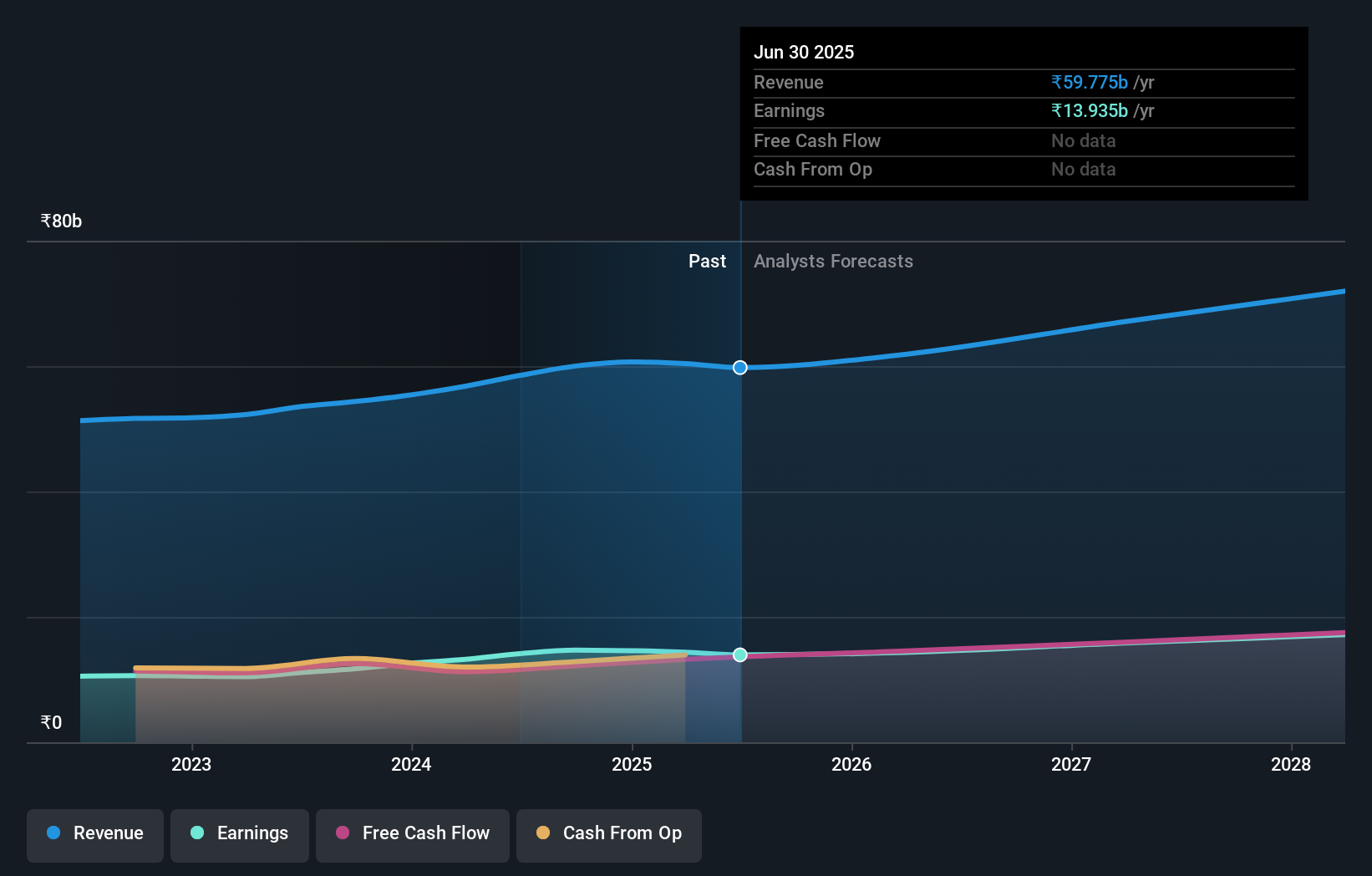- India
- /
- Personal Products
- /
- NSEI:COLPAL
Colgate-Palmolive (India) Limited (NSE:COLPAL) stock most popular amongst public companies who own 51%, while individual investors hold 27%
Key Insights
- The considerable ownership by public companies in Colgate-Palmolive (India) indicates that they collectively have a greater say in management and business strategy
- Colgate-Palmolive Company owns 51% of the company
- Institutional ownership in Colgate-Palmolive (India) is 22%
A look at the shareholders of Colgate-Palmolive (India) Limited (NSE:COLPAL) can tell us which group is most powerful. We can see that public companies own the lion's share in the company with 51% ownership. Put another way, the group faces the maximum upside potential (or downside risk).
Meanwhile, individual investors make up 27% of the company’s shareholders.
In the chart below, we zoom in on the different ownership groups of Colgate-Palmolive (India).
View our latest analysis for Colgate-Palmolive (India)

What Does The Institutional Ownership Tell Us About Colgate-Palmolive (India)?
Institutional investors commonly compare their own returns to the returns of a commonly followed index. So they generally do consider buying larger companies that are included in the relevant benchmark index.
Colgate-Palmolive (India) already has institutions on the share registry. Indeed, they own a respectable stake in the company. This can indicate that the company has a certain degree of credibility in the investment community. However, it is best to be wary of relying on the supposed validation that comes with institutional investors. They too, get it wrong sometimes. If multiple institutions change their view on a stock at the same time, you could see the share price drop fast. It's therefore worth looking at Colgate-Palmolive (India)'s earnings history below. Of course, the future is what really matters.

Colgate-Palmolive (India) is not owned by hedge funds. Colgate-Palmolive Company is currently the company's largest shareholder with 51% of shares outstanding. With such a huge stake in the ownership, we infer that they have significant control of the future of the company. For context, the second largest shareholder holds about 3.0% of the shares outstanding, followed by an ownership of 2.5% by the third-largest shareholder.
While studying institutional ownership for a company can add value to your research, it is also a good practice to research analyst recommendations to get a deeper understand of a stock's expected performance. There are a reasonable number of analysts covering the stock, so it might be useful to find out their aggregate view on the future.
Insider Ownership Of Colgate-Palmolive (India)
While the precise definition of an insider can be subjective, almost everyone considers board members to be insiders. Company management run the business, but the CEO will answer to the board, even if he or she is a member of it.
Most consider insider ownership a positive because it can indicate the board is well aligned with other shareholders. However, on some occasions too much power is concentrated within this group.
Our data cannot confirm that board members are holding shares personally. Given we are not picking up on insider ownership, we may have missing data. Therefore, it would be interesting to assess the CEO compensation and tenure, here.
General Public Ownership
The general public, who are usually individual investors, hold a 27% stake in Colgate-Palmolive (India). This size of ownership, while considerable, may not be enough to change company policy if the decision is not in sync with other large shareholders.
Public Company Ownership
It appears to us that public companies own 51% of Colgate-Palmolive (India). It's hard to say for sure but this suggests they have entwined business interests. This might be a strategic stake, so it's worth watching this space for changes in ownership.
Next Steps:
I find it very interesting to look at who exactly owns a company. But to truly gain insight, we need to consider other information, too. Take risks for example - Colgate-Palmolive (India) has 1 warning sign we think you should be aware of.
But ultimately it is the future, not the past, that will determine how well the owners of this business will do. Therefore we think it advisable to take a look at this free report showing whether analysts are predicting a brighter future.
NB: Figures in this article are calculated using data from the last twelve months, which refer to the 12-month period ending on the last date of the month the financial statement is dated. This may not be consistent with full year annual report figures.
New: AI Stock Screener & Alerts
Our new AI Stock Screener scans the market every day to uncover opportunities.
• Dividend Powerhouses (3%+ Yield)
• Undervalued Small Caps with Insider Buying
• High growth Tech and AI Companies
Or build your own from over 50 metrics.
Have feedback on this article? Concerned about the content? Get in touch with us directly. Alternatively, email editorial-team (at) simplywallst.com.
This article by Simply Wall St is general in nature. We provide commentary based on historical data and analyst forecasts only using an unbiased methodology and our articles are not intended to be financial advice. It does not constitute a recommendation to buy or sell any stock, and does not take account of your objectives, or your financial situation. We aim to bring you long-term focused analysis driven by fundamental data. Note that our analysis may not factor in the latest price-sensitive company announcements or qualitative material. Simply Wall St has no position in any stocks mentioned.
About NSEI:COLPAL
Colgate-Palmolive (India)
Manufactures and trades in personal and oral care products in India.
Flawless balance sheet with acceptable track record.
Market Insights
Community Narratives



